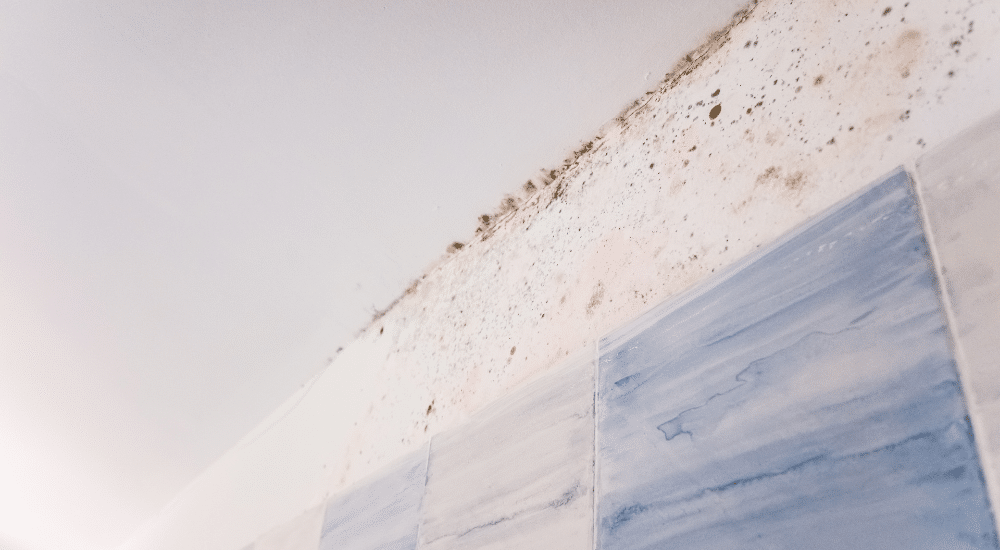Having and using water in your home is not something most people would consider dangerous. Despite its utility, however, the moisture from water can cause you a fair few problems you would not otherwise expect.
As a building biologist, my number one goal is to help people create a safe and healthy home. While I’ve spoken extensively about EMFs and poor air quality in the past, there is another major instigator of health problems—excessive moisture.
Moisture in your home may sound like a very mild inconvenience but the truth is, it’s anything but. It indicates a high level of humidity and this, in turn, can affect your health and make your indoor environment uncomfortable.
Moisture causes mould and mildew to grow
Rain during the summer months can lead to high levels of moisture in your home—and this creates the perfect conditions for mould and mildew to thrive.
Mould and mildew can spread rapidly under the right conditions and homes with high levels of moisture are ideal. Apart from being an eyesore, these conditions can also have a negative effect on your health, potentially leading to various respiratory problems when you breathe in the spores.
Adults and children with asthma may be prone to more asthma attacks as mould is a common trigger and irritant. Other symptoms for people who are sensitive to mould are headaches and fevers.
If you have any mould or mildew growing anywhere in your home, it’s a clear sign that the moisture levels in your environment are high.
Sometimes mould or mildew may not be too obvious, so you should consider having a mould inspection carried out if you suspect it may be taking root somewhere. If it’s not too extensive, you can also try and get rid of it yourself.
It can lead to heat exhaustion
Sweating is one way we lose heat from our bodies. During the warm summer months, our bodies heat up and we lose heat through the excretion and evaporation of sweat droplets from our skin.
High levels of moisture in your home can make it difficult for you to lose heat by sweating.
Due to the high concentration of water in the air, sweat evaporates from the skin a lot slower than usual. When we can’t lose this heat through sweating, our bodies start to overheat.
Aside from feeling muggy and damp, you may even start experiencing heat exhaustion. Since your body is not able to cool down, it starts producing more sweat and this can lead to you feeling tired, dizzy and weak. In extreme cases, you may even become dehydrated.
Excessive moisture can trigger allergy-like symptoms
High levels of moisture indoors can cause your lungs to produce more mucus than normal and this can make you experience symptoms similar to an allergic reaction.
Phlegmy throats, post-nasal dripping and sneezing are a few common symptoms experienced by people exposed to high levels of moisture indoors. People with asthma or sinusitis may find moist conditions especially uncomfortable and in certain instances, high levels of moisture can prove ideal for bacterial and virus growth.
It can exacerbate the effect of VOCs on your health
I’ve spoken a lot about VOCs in some of my previous posts; these are volatile organic compounds that are present in almost every home across Australia and are contained in various household items, from paint to new carpets.
Studies have shown that high levels of moisture in the air can cause VOCs to have a greater effect on your air quality and health.
One reason for this is that certain homes may use carbon filters to keep their indoor air clean. High levels of moisture, in turn, make these filters less effective, making it harder for them to filter out harmful VOCs.
Excessive moisture in your home can become a serious problem
Moisture can be just as problematic for your home as other issues like excessive EMFs.
While too much moisture may not sound as alarming as EMF radiation, it can act as a catalyst for many other issues, including mould growth; a serious hazard to your health and building structure.
Keep your indoors comfortable and safe by controlling the level of moisture in your environment. Good luck!

